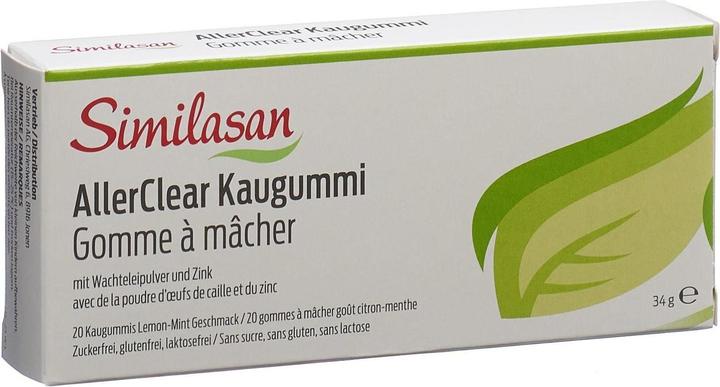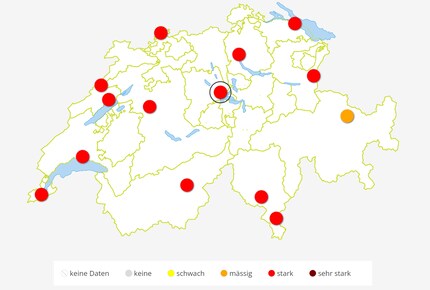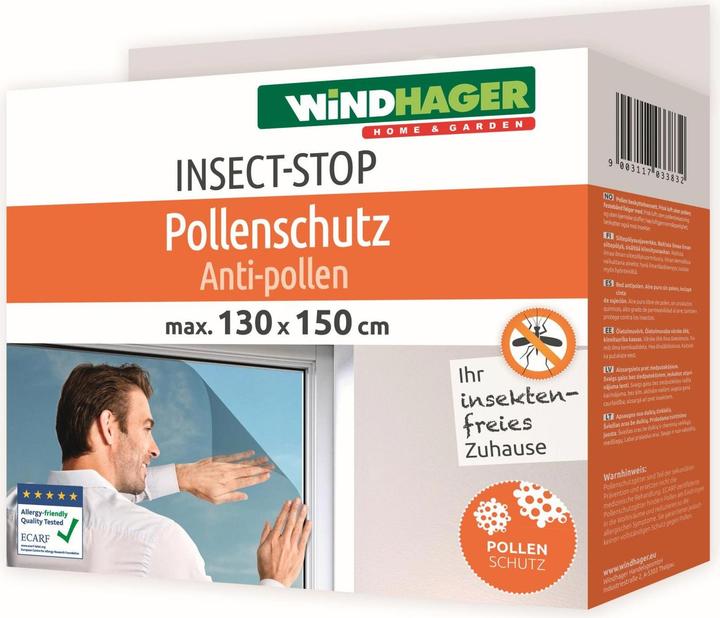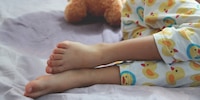

Ah-ah-achoo! How to help kids with hay fever
It’s the height of hay fever season – something that’s incredibly unpleasant for children, and more and more are suffering from it. But what can you give little ones to alleviate the symptoms? And could it just be a cold? We asked an expert to weigh in.
Have you already been full of the sneezes today? And what about your kids? The pollen count is high right now – and it probably will be for a while yet. In any case, my kids and I could easily play a game of achoo bingo these days. We’re just sneezing constantly. There’s also itchy, red eyes and runny noses to contend with.
This year, my younger, four-year-old daughter is also taking part in the pollen game for the first time. It almost seems like my older one and I «infected» her. My first thought when I heard her sneezing hat trick, however, was a different one: oh gosh, she’s got a cold coming. That was before it even crossed my mind that it could be a pollen allergy.
Common cold or allergy?
It’s not so easy to tell the difference. Barbara Peter from «aha! Swiss Allergy Centre» also confirms this. «The symptoms of hay fever and a cold are actually very similar, and little ones often aren’t yet able to describe exactly what’s wrong with them,» explains Barbara.
Her advice is to have your child examined by a doctor or an allergist. You need a comprehensive medical history and blood test that detects IgE antibodies in order to diagnose an allergy. «IgE» stands for immunoglobulin E type antibodies, which are responsible for mediating certain allergic reactions. That’s why they’re essential for allergy diagnostics.
When it comes to feeling like you’ve «infected» your child, you’re not entirely barking up the wrong tree. In fact, a predisposition to hay fever is something that’s passed from one generation to the next. «If the mother and father already have a pollen allergy, it’s more than 60% likely to affect their children,» says Barbara Peter. If neither the parents nor the child’s siblings are affected, there’s still a 12% chance they’ll suffer from hay fever.
While we’re on the topic of statistics, these confirm suspicions that ever more children are affected by this condition. According to the Allergy Centre, about 13% of children and teenagers develop allergies by the age of 17. The number of people with pollen allergies is rising. Most children develop it from kindergarten age, as babies and toddlers are very rarely affected.
Prevention begins during pregnancy
According to Barbara Peter, it’s not only genes that play a key role – environmental and lifestyle factors are also central. Prevention starts before birth, with a balanced and varied diet being important for the mother. Smoking, even second-hand, is harmful. «Once the baby is here, you’ll want to breastfeed for the first four months, if possible. This has been shown to have a protective effect and safeguard against allergies.»
However, if they’ve already developed allergies, the focus is on relieving any unpleasant symptoms. Anti-allergy drugs, known as antihistamines, usually inhibit allergic reactions quickly, but they’re only approved when the patient is over a certain age. That being said, there’s also some medication that can be taken from the age of two. The takeaway: read the leaflet it comes with or ask a specialist.
For minor complaints, «aha! Swiss Allergy Centre» recommends topical application, in the form of nasal sprays and eye drops, or for more severe complaints, tablets, syrups or drops. Depending on the extent of the problem, more treatment may be needed. «It’s at that point that the paediatrician or allergist can prescribe other topical medication, such as nasal sprays with cortisone, to reduce inflammation in the nose,» explains Barbara.
She emphasises that a pollen allergy always needs to be treated to prevent it getting worse. Many people are unaware that untreated hay fever can develop into allergic asthma.
Desensitisation is an option from age five
Allergen-specific immunotherapy – otherwise known as desensitisation – could stop hay fever turning into allergic asthma. It’s also recommended when medications don’t ease the problem enough. This treatment looks promising. According to studies, it can alleviate symptoms by up to 80% and significantly reduce the amount of medication required. In Switzerland, children as young as five can start desensitisation if they meet all the requirements. Our expert explains that you need to discuss the situation with your doctor or allergist to find out if allergen-specific immunotherapy is a possibility.
Until then, it’s a case of trying out alternatives. A few simple tips and precautions can also help to at least reduce symptoms somewhat:
- As parents, keep yourself informed about the current pollen count (site in German).
- Do more activities indoors when pollen levels are high.
- Wear sunglasses during all outdoor activities.
- Only stay outside briefly when the weather is nice and windy.
- Don’t dry your washing outdoors.
- Only air your home at short intervals during pollen season.
- If your child suffers from hay fever, wash their hair before bed.
- Install pollen screens on the windows.
Right then. Ha-ha-ha-haaaave a good Whitsun.

Source: screenshot Pollenundallergie.ch
Header image: Shutterstock/Pavel Kobysh
Mom of Anna and Elsa, aperitif expert, group fitness fanatic, aspiring dancer and gossip lover. Often a multitasker and a person who wants it all, sometimes a chocolate chef and queen of the couch.
Practical solutions for everyday problems with technology, household hacks and much more.
Show all


